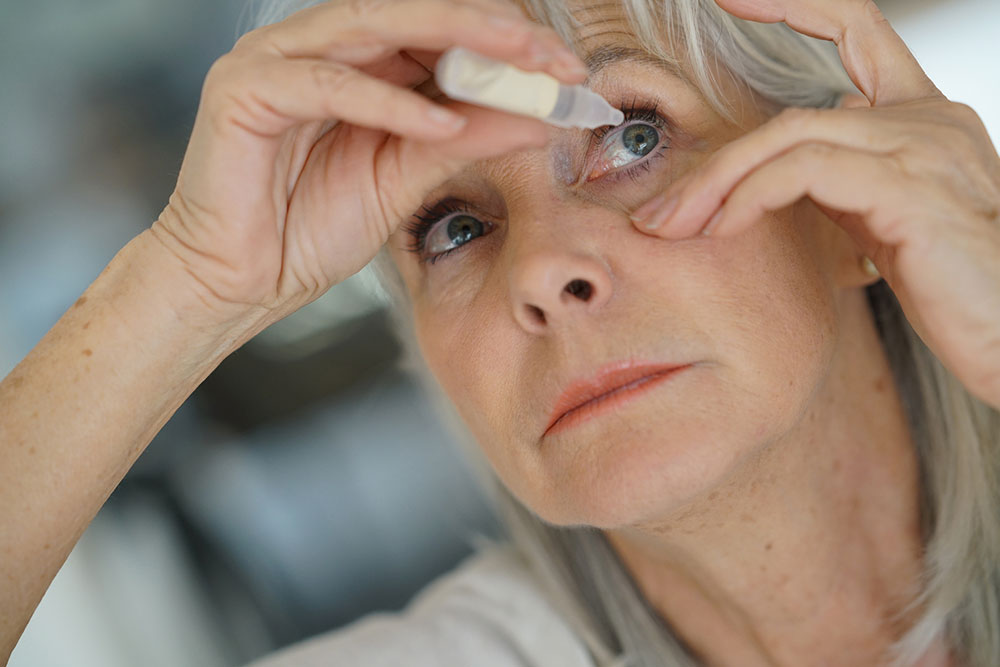Dry Eyes – Symptoms, Causes, and Treatment Options
The eyes are your window to the world. Not only do your eyes tell a tale during your times of happiness, but also in your times of sadness. You may cry out of joy or in pain, the only thing common to the two situations is the secretion of tears. They help provide lubrication and moisture which help you see properly and ensure that your eyes are comfortable. Tears are a mixture of several substances which include water for moisture, oils for lubrication, mucus to ensure that they spread evenly and antibodies and special proteins which ensure that infections are kept at bay.

Symptoms and causes of dry eyes
There are several symptoms of dry eyes which include itching, redness, blurry vision, light sensitivity, a gritty feeling, and a feeling like there is something in your eye when there is actually nothing. The condition may sometimes lead to the secretion of excess tears as well. This condition is referred to as reflex tearing. This occurs as there is a lack of moisture in the eye that causes irritation.
- One of the most common causes of dry eyes is a lack of balance in the system that creates tears.
- Another common cause of chronic dry eyes includes the air conditioner or heater, which could dry out the tear film. Other HVAC devices could do the same as well.
- There are several medications which may cause dry eyes as a side effect.
- The natural aging process may lead to the development of this disease. Menopause is one of the most common causes under this category.
- Another one of the common causes of dry eyes is if you are suffering from diseases that could affect your ability to make tears. These include diseases such as rheumatoid arthritis, Sjogren’s syndrome, and collagen vascular diseases.
- There are several other problems which can affect the process of the eyelid shutting properly. This results in the drying out of the tear film over time or may result in other conditions which may lead to dry eyes.
How are dry eyes treated?
There are several treatment methods available for dry eyes. However, it is important to consult a doctor before making a decision. Your doctor will suggest a medication which suits you the best according to the cause of the disease and the symptoms experienced. Here are a few of the popular treatment options for dry eyes:
- Artificial tear drops and ointments
Artificial tear drops and ointments constitute the most common treatment method for dry eyes. They are easily available and inexpensive as well. There are several different types of eye drops available over the counter and you may have to choose a product after trying many different options. Chronic dry eyes need to be treated in a different way. You will have to apply the eye drop constantly to ensure that they are moist enough. Your eyes may feel fine, but you have to take constant care of them and ensure that their moisture content is retained or well supplemented. You can use ointments at night to ensure retaining the moisture content of the eye. These ointments are thick and do not run out easily. They will last the night and keep you comfortable as well. - Temporary punctal occlusion
While there may be several common causes of dry eyes , there are several solutions for the same as well. Temporary punctal occlusion is a procedure which involves the temporary closure of the punctum. The punctum is the duct that drains tears from the eyes. Your doctor may start with a temporary plug which is designed to dissolve over time. If it works, your doctor may then migrate to a permanent solution.
- Lipiflow
Lipiflow is a medical device that makes use of pressure and heat to unclog clogged and blocked glands on your eyelids. It helps keep your eyes moist and prevents the evaporation of tears. - Testosterone cream
Of the many common causes of dry eyes , a lack of testosterone in the oil glands on your eyelids may result in the development of this condition. Your oil glands will work better if you use a testosterone cream for the same.
Therefore, diagnosing dry eyes at the earliest is essential for effective treatment. So, consult your doctor today if you feel itchiness or see redness in your eyes or if your vision is blurry. The right diagnosis can help in the effective and timely treatment of the condition.

